With their social media project, Girls At Dhabas, five young women from across the border are treading into traditionally male bastions, like the dhabas, and egging women to occupy more public spaces in Pakistan. Karachi-based Sadia Khatri, one of the brains behind this project, shares more
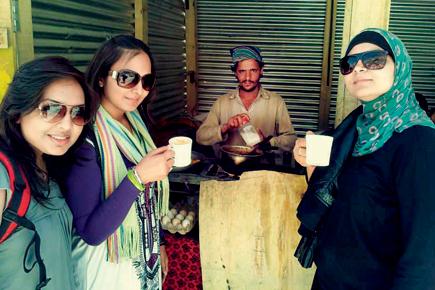
At Hunza in Pakistan
'Desi feminists and women defining public space(s) on our own terms and whims’, is the tagline of the community, Girls At Dhabas, on their Facebook page. The timeline is filled with photographs of a bunch of women enjoying chai and conversation at roadside dhabas in parts of Pakistan, quite oblivious to curious, and often awkward glances of fellow patrons, mostly men.
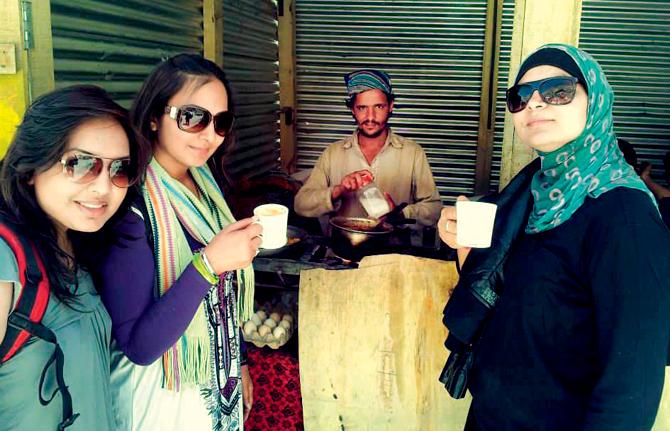
At Hunza in Pakistan
Started by five 20-something women from Pakistan, this page, launched last week, is an extension of their blog on Tumblr by the same name. “I don’t have any illusions that this project will dispel myths or that it is even a movement. It’s not that grand on scale,” says Sadia Khatri, a Karachi-based journalist/writer, who is one of the founders of this project, over an email interview. Excerpts:
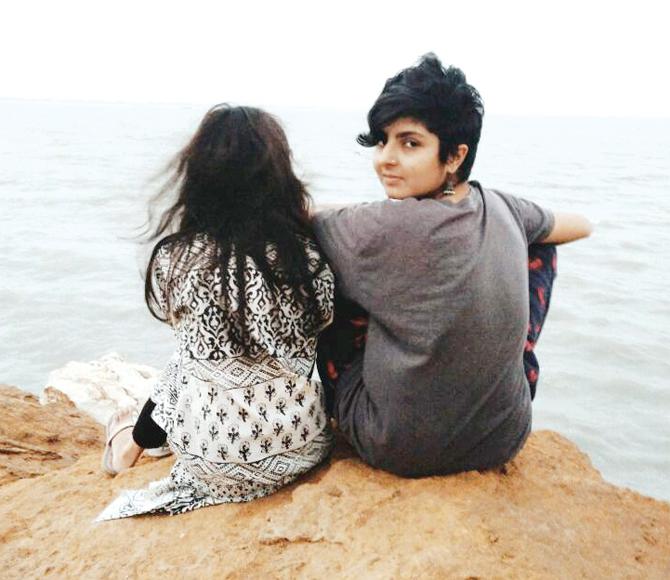
Girls at the rocks in Karachi, a post tagged with a note: A stretch of disgusting seawater and mouldy rocks on the edge of Karachi, near Phase 8. Male habitat between the hours of 11 pm and 6 am. Wheelies and motorcycle races offer 24/7 non-stop entertainment (you don’t have a choice), especially on weekends. Not a family spot usually. Ideal for stoner seshs and low key dating shating (sic)
Q. What was the idea behind starting Girls At Dhabas?
A. The project was born a couple of months ago. Some friends and I often hang out at dhabas. During these dhaba hops, I started thinking more about my sudden access to a traditionally male space. I was often the only woman there. A friend and I tagged a dhaba picture with the hashtag #girlsatdhabas because we had been talking about some of these things. A few more tags and we began gathering attention in our social media circles. For me, Girls At Dhabas is about women appearing in spaces they are not traditionally associated with, in ways they want to. And it’s about promoting that visibility (through social media, which impacts our daily understanding of what’s going on in the world). Women (and men!) need to be encouraged to think about their own mobility and access.
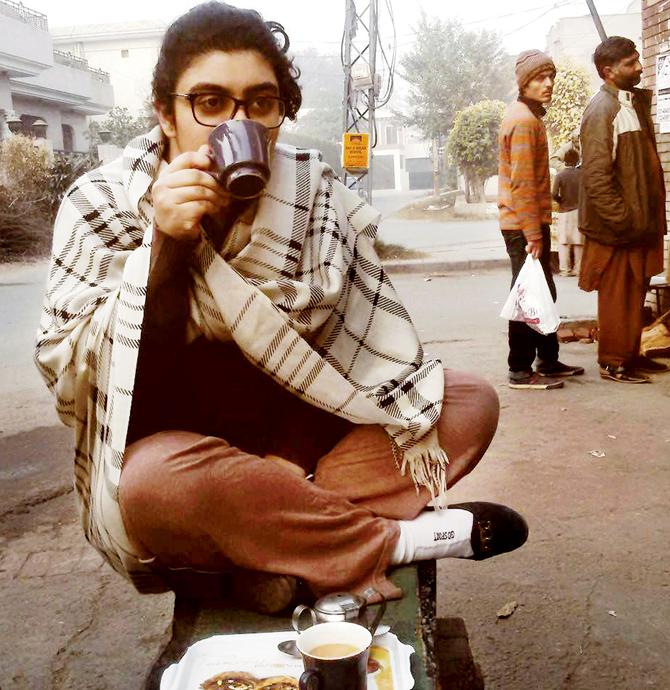
At a dhaba in Lahore
Q. Any reason for choosing dhabas in particular?
A. It started with dhabas because that was already a part of my routine. However, the reason we’re going out in public spaces specifically is because they are inherently male-dominated. On streets and recreational areas (parks, beaches), you might see some women but mostly because they are on an errand or a job. We need more women to occupy public spaces. We need more women to think they can. It’s ridiculous how few women I see in the most ordinary places, and if I do, it’s always them going somewhere. We can’t even consider sitting at a roadside shop or sidewalk for hours, because of ‘xyz’ reasons.
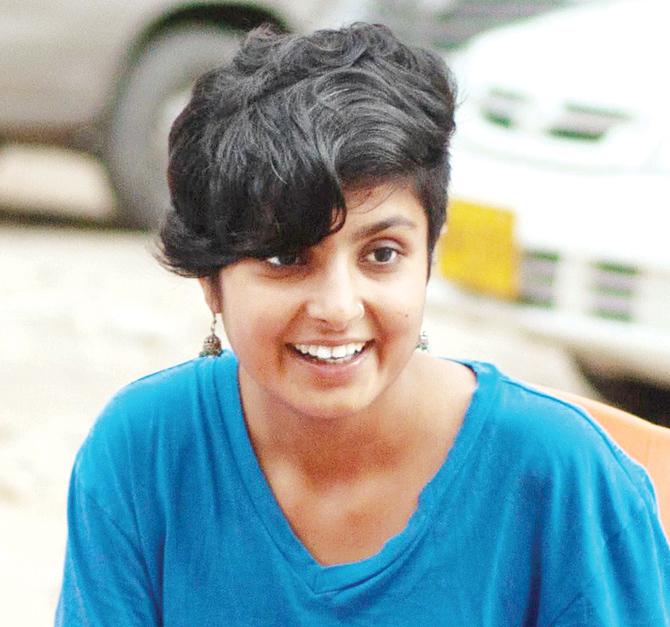
Sadia Khatri
Q. How would you define the term, ‘desi feminists’?
A. Women who are feminists and desi. How they choose to define that label, whether they ascribe to one or both, or none, it doesn’t matter. As long as you care about women’s freedoms, rights and mobility, this should interest you. Desi because our challenges are defined by our culture; women are considered to be an extension of their fathers, brothers and sons and our independence is looked down upon; we are taught to be passive and submissive, associated with ideas of honour, protection and chastity, taught to be ashamed of our sexuality. The idea is that we will focus on feminist issues within the desi scene, since that’s where we are.
Q. Who are the other girls involved in this project?
A. There are five of us. We manage content and brainstorm. A few others are interested. We’re women from Pakistan, though we don’t all live here — one of us is a journalist, about to start grad school, one is studying social sciences, one is in art school, one is an economist and works in development, and I recently finished my undergrad course from Mount Holyoke College, USA and moved back to Karachi. I also write for a literary magazine and I am the only one who has met all of them in person.
Q. Do you plan to expand this project to other male-dominated spaces too?
A. Yes, absolutely. Wherever we can make small dents, we will try to.
Q. Which other parts of the world do you plan to cover through this project?
A. Considering we’re running this on social media, and that a lot of real life events don’t get photographed and recorded, our reach has its limits. But we are accepting submissions from everyone, there are likely to be posts from other countries as well.
Log on to: Girlsatdhabas.tumblr.com or www.facebook.com/girlsatdhabas
 Subscribe today by clicking the link and stay updated with the latest news!" Click here!
Subscribe today by clicking the link and stay updated with the latest news!" Click here!







